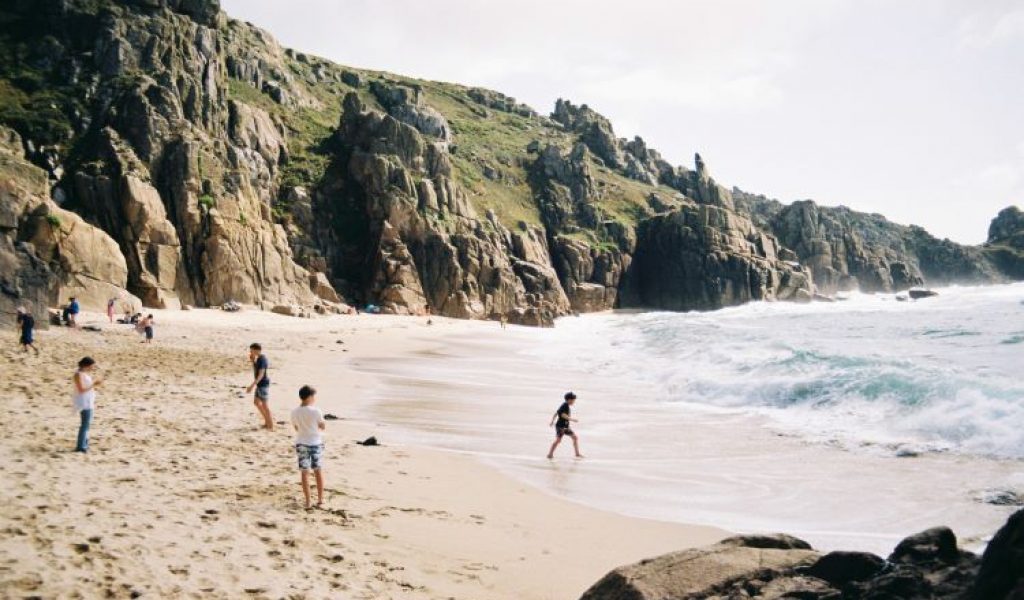How has one of the hottest summers on record affected Devon?

Elen Johnston explains the effects of the heatwave on the landscape and infrastructure of Devon in the hottest summer on record and considers the future of rising temperatures due to climate change.
This summer the UK has experienced record-breaking temperatures, recorded as exceeding 40°C in many parts of the country by the Exeter based Met Office. The high temperatures have had a significant impact on infrastructure and nature across Devon and Cornwall.
The heatwaves and sustained drought left firefighters tackling wildfires across Devon and neighbouring counties. Devon & Somerset Fire & Rescue Service group commander Rowan Dela-sal said the fire services worked: “really, really hard in arduous conditions with heavy PPE”. A fire near Exeter destroyed ten acres, 100 meters of hedgerow, and a combine harvester. These events are evidence of how heat waves pose serious wildfire risks across Devon as dry ground and plants catch fire quickly in extreme heat. During the heatwave the Met Office raised the Fire Severity Index to its highest level to reflect this. Devon and Somerset Fire and Rescue asked the public to not participate in campfires or BBQs, not litter, and to properly dispose of cigarettes.
The UK Health Security Agency have also instituted a health alert, with potential concern over the effect of warm weather on the elderly and other vulnerable communities.
The hot weather saw an influx of tourists to the South West counties, which placed additional strain on infrastructure. South West Water urged people to cut down on water use to maintain reservoir levels as ‘up to 10 million additional users as people come to enjoy the beautiful South West over the summer months’.
During the heatwaves Devon saw roads melt due to extreme heat, in July roads in some areas of the county reached 57°C. Cabinet member for highway management, Councillor Stuart Hughs, said: “Where we see roads becoming tacky with the heat, we are ready to dust them to improve friction, so drivers need to stay alert and reduce their speed as they would on newly gritted or treated roads”. Train lines are stress tested at 27 degrees and prone to buckling above that.
Following the hot weather thunderstorms were experienced across the UK with weather warnings issued. Unfortunately as the heavy rain lands on permeate dry ground, rather than alleviating the drought, the heavy rain led to flash flooding in parts of the UK. During mid-August, Cornwall, Devon and Somerset had an amber warning issued for the thunderstorms and drivers were urged to be careful. RAC road safety expert Simon Williams told ITV: “When roads or conditions have been so dry, flash floods are going to appear and cause a danger to drivers”.
Prolonged hot and dry spells make the coastline unstable and rockfalls more likely
Devon & Cornwall’s famous coastlines were also impacted by this summer’s high temperatures. Dr Vanessa Banks, engineering geologist at the British Geological Survey (BGS), warned the Guardian that heavy rain after a heatwave can weaken cliffs, leading to potential rock falls. On August 8th East Beach in Sidmouth saw two large cliff collapses and numerous rockfalls. While coastlines normally experience cliff collapses due to natural erosion, the rising temperatures and extreme weather increase the risk of these events. Dorset councillor Ray Bryan, portfolio holder for highways, travel, and environment, also told The Guardian that “rockfalls are entirely unpredictable and can happen at any time – but we do know which conditions make them more likely, and prolonged hot and dry spells are one of them.”
However, on a smaller scale, the National Trust has reported that beavers are helping to mitigate the heatwaves impact on the environment by changing the landscape of rivers and wetlands to hold more water. Ben Eardly, the National Trust’s Holnicote project manager, told The Independent: “… we’ve now got river systems that are very reactive, so when you’ve got much wetter weather or drier weather, you are not really holding any water in the landscape to develop resilience” and that beavers are “cumbersome, they don’t really like moving around on land, they want to move around in deeper water to access vegetation and escape predation… that’s when they develop these amazing waterscapes we see at Holnicote”.
This summer’s heatwaves will become the new normal due to the climate crisis
According to the group of climate researchers the World Weather Attribution team (WWA), the UK’s July heatwave was made at least 10 times more likely by the climate crisis due to fast rising temperatures in Western Europe. Using scientific analyses and climate modelling, the team concluded the heatwave would have been ‘nearly impossible’ without the human induced global heating of 1.2 degrees since the Industrial Revolution. The Met Office also recently revealed that this summer’s heatwaves will become the new normal due to the climate crisis, with heat waves likely to occur every other year by the 2030s.


